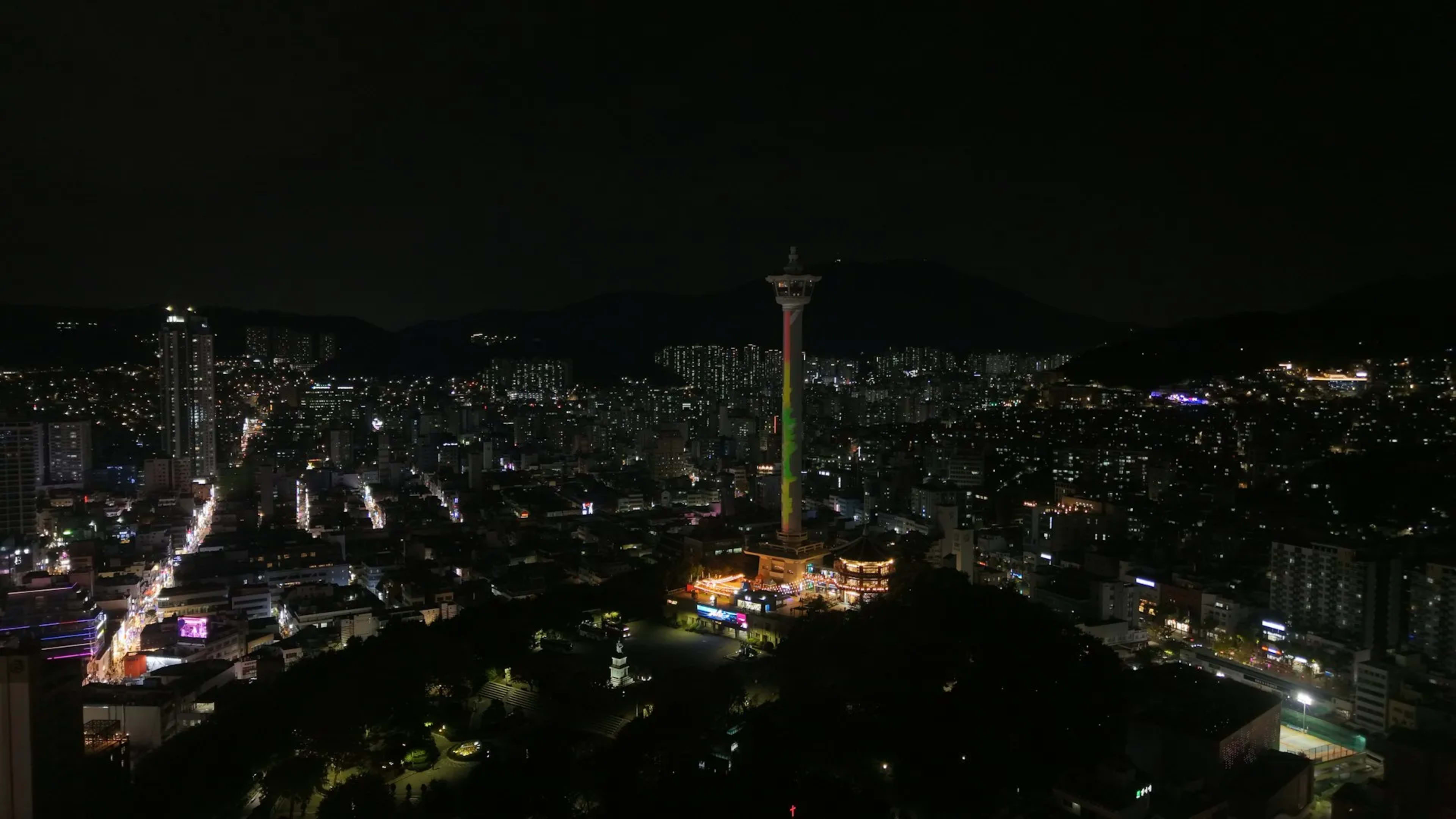Location & Transportation
Cruise ships dock at the Busan Port International Cruise Terminal, where you’re often greeted with a lively display of Korean dance and music. The city makes it easy to get around:
- Free city shuttles run from the terminal to the Nampodong area in downtown Busan – the ride takes about 30 minutes.
- The subway is a great option too. Busan’s three subway lines connect you to many of the city’s must-see spots.
- Taxis are readily available. A regular taxi will cost roughly KRW 1,800 for the first two kilometers, with additional charges as you travel further. If you opt for a deluxe taxi, the fare starts at about KRW 4,200 for the first three kilometers. A small tip: always have your destination written in Korean for ease.
Nearby Lodging
I’ve found that Busan offers a wide range of accommodations. Whether you’re looking for a luxury hotel with ocean views in the Haeundae area or a budget-friendly guesthouse in Seomyeon, there’s something for every taste.
Nearest Airport
Gimhae International Airport is Busan’s main airport, located about 30–40 minutes away by taxi. There are also convenient airport buses and subway links if you prefer public transportation.
Sightseeing
Busan is a bustling city with a mix of modern attractions and historical charm. As you wander around, you’ll notice:
- The international flair brought by its status as the largest seaport in South Korea.
- Beautiful temples and scenic coastlines that reflect the city's rich cultural heritage.
Highlights include:
- Beomeo-sa Temple – One of Korea’s great temples, located a short subway ride away. It’s set in a peaceful, mountainous area that feels like a world apart from the city bustle.
- Taejongdae – Famous for its white lighthouse and dramatic cliffs overlooking the green sea. Enjoy a leisurely walk, hop on a shuttle bus from the nearby shops, or even take a boat ride around the small islands off the coast.
- A stroll in downtown areas like Yongdusan Park, where local street food and art meld with impressive city views.
Tours & Excursions
If you’re ready to explore farther afield, there are several tour options:
- Busan Hop On/Off Tour: This tour offers two main routes. The Haeundae route runs every 30 minutes, and the Taejongdae route every 40 minutes – the latter even includes a stop near the cruise terminal. It’s a relaxed way to see the city.
- Subway and Bus Tours: The city's subway system is tourist-friendly, with English signage and announcements. Additionally, regular city bus tours provide an affordable way to get a crisp overview of Busan’s major attractions.
- On Foot: Some neighborhoods, such as around Gwangalli Beach and Yongdusan Park, are perfect for exploring by walking. Enjoy the outdoor art, local cafés, and a seaside vibe that is uniquely Busan.
It‘s a good idea to compare shore excursion costs between what your cruise line offers and options like Viator and GetYourGuide. They often provide lower prices and include customer reviews and ratings to help you choose the best option. They may also offer more more flexible cancellation or rescheduling policies than those available through your cruise line. However, while booking independently might give you more variety and potentially better rates, be mindful of your schedule - cruise line excursions are typically coordinated to match your ship‘s schedule with guaranteed pick-up and drop-off times.
There is also a great resource for finding local guides at Tours by Locals. Tours by Locals connects you with local guides who can help you plan a private personal tour, guide you, and get you back to your ship on time. You can also check out Rome2Rio for local transportation options. It is a great resource for finding how to get from one place to another, including public transportation, taxis, ferries, and more.
Shopping
Once you’re off the ship, take some time to visit the International Market in the vicinity of Biff Square. This area is a maze of small streets filled with local vendors selling souvenirs, clothing, and quirky finds. It’s a great opportunity to pick up a unique memento of your visit.
Dining
No trip to Busan is complete without sampling the local flavors:
- Head to Jagalchi Fish Market, famous for its fresh seafood. Whether you’re dining at a market stall or one of the nearby restaurants, you’ll find a delicious array of raw fish and other sea delicacies.
- Don’t miss out on trying local street food, from savory rice cakes to spicy seafood stews. The mix of traditional and modern Korean cuisine here is sure to delight your palate.
Culture & Local Events
Busan beautifully balances its traditional heritage with a modern, international vibe.
Local Events
- Busan is renowned for its film and arts scene. The annual Busan International Film Festival (BIFF) attracts visitors from around the world.
- The Busan Sea Festival celebrates the city’s maritime spirit with fireworks, performances, and beach parties during the summer.
- You might also catch local cultural events and traditional performances that showcase Korean music, dance, and crafts.
Safety & Awareness
- Busan is known for its friendly and welcoming atmosphere. Nonetheless, as with any major city, keep an eye on your belongings, especially in crowded areas.
- The emergency number for police is 112.
- When it comes to money, the local currency is the won (KRW). Generally, credit cards are widely accepted in restaurants, hotels, and larger shops, though small vendors might prefer cash.
- For language, Korean is the main language spoken. However, English is fairly common, particularly among younger people and in tourist areas.
- Shops in Busan typically open from 10:30 to 20:00, but it’s always good to double-check specific store hours when planning your visit.
